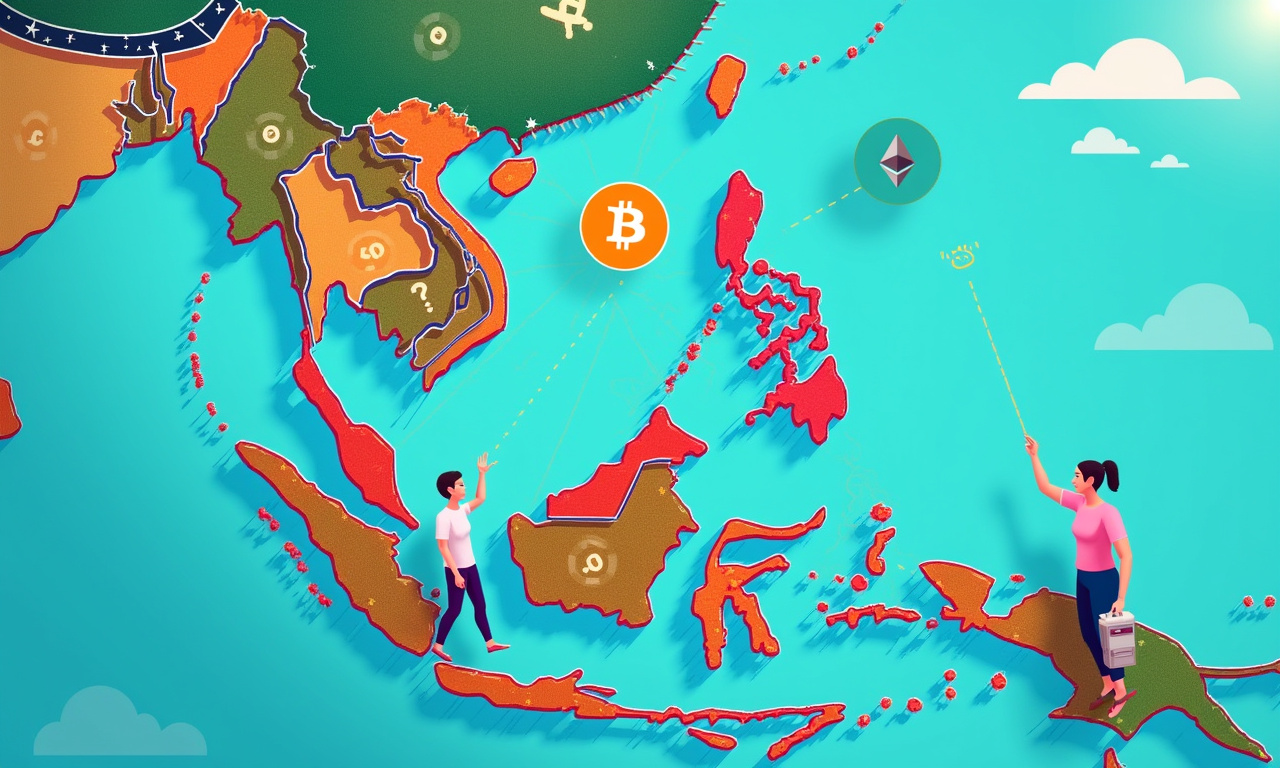MoneyGram Crypto Bridge: 3 Ways It Could Reshape Southeast Asia

The new CompoSecure/MoneyGram joint venture, utilizing the Arculus hardware wallet and Stellar blockchain, is more than yet another crypto partnership. We’d argue that it’s a potential checkmate move in the long game of financial inclusion, especially for Southeast Asia. I truly think this kind of integration can completely change the financial trajectory for millions, and here’s why.
Cash To Crypto: A Regional Game Changer?
Think about Southeast Asia. We’re speaking of a region rich with dynamic financial ecosystems, yet sheathed by a battleground of glaringly unbanked demographics. Even in digital payment hotbeds such as Indonesia, the Philippines and Vietnam, a large share of the population still uses primarily cash. According to a new 2024 World Bank report, that’s actually the worst part. In some areas, over 70% of adults lack access to formal banking services. From exorbitant remittance fees to isolation from global credit and investment markets, the list of challenges is vast.
Now, consider MoneyGram's massive footprint: over 440,000 retail locations across 200+ countries. All of a sudden, converting physical cash into USDC and back is made extremely easy. Because this is not just about convenience, it’s about empowerment. Consider, for instance, a migrant construction worker in Singapore sending remittances back to his family in the Philippines. Save on the fees charged by traditional remittance services that reduce your income. Instead, exchange your cash into USDC, transfer it instantly and securely across the world on the Stellar blockchain, and have your family members withdraw it in cash from a MoneyGram agent nearby. We’re cutting out the middleman! This is a welcome shift, putting more money directly into the hands of people who need it most. This is decentralizing financial power.
This is where the Arculus wallet shines. Self-custody is key. They have the power to manage their own money, independent of a bank’s approval. Arculus is focused on security, which will be important as consumer trust will be paramount.
Let's be realistic. Adoption won't be immediate. There are hurdles to overcome. Digital literacy is a major concern. Unfortunately, a lot of folks in the region don’t have the skills and knowledge to participate in this emerging crypto ecosystem. Infrastructure barriers like inconsistent or non-existent internet access play a role. Regulatory uncertainty in many countries, including the U.S., may dampen their pace. The potential is there.
Stellar's Role: Bridging the Old and New
Stellar isn’t like any other blockchain—it’s a bridge. A digital bridge between old money and new, connecting established financial institutions with the nascent world of decentralized finance. Why? Well, because Stellar is built specifically for tokenizing and exchanging any kind of value. This interoperability is crucial. It facilitates free-flowing, real-time transfer between any currency or asset, no matter what’s underlying it.
This week’s Stellar Development Foundation (SDF) grant to Arculus to develop DeFi Pay on Stellar is another admirable example. Allowing payments to be made directly from self-custody crypto wallets is a huge blessing. It enables transactions across existing payment card networks such as Visa and Mastercard. Now, picture being able to spend your stablecoins at any existing point-of-sale terminal—whether that’s in a restaurant or grocery store—simply by tapping your card. This moves crypto deeper into the mainstream, putting it into the hands of regular consumers.
I am convinced that this integration would jumpstart a tidalwave of innovation in the region’s burgeoning fintech sector. We can expect new apps and services to be built on top of the Stellar blockchain. These innovations will make available new, more convenient and affordable financial solutions. Much will depend on how quickly and effectively regulators are able to adapt to the new landscape and provide clear guidelines on the use of cryptocurrencies.
Financial Inclusion: A Collaborative Effort
This MoneyGram/Arculus integration is not the proverbial silver bullet, but it’s a very big step in that direction. To really unlock its potential, we’ll have to come together and chart a course. What needs to happen Governments, NGOs, and the private sector should all play their part.
Governments must find the right balance between providing a regulatory environment that fosters innovation and meeting consumer protection goals. That requires balancing support for innovation with attention to safety. NGOs play a critical role in bridging the digital literacy gap through education and training programs. Private companies can invest in infrastructure and develop user-friendly solutions that are tailored to the specific needs of the region.
I know, I know… this isn’t some radical plan to transport subway cars. It’s about empowering consumers, building robust small businesses, supporting vibrant communities financially, and a more equitable financial system for all Americans. It’s about empowering Americans with the information to chart their own economic future. It's about human dignity.
The potential is really there to reverse engineer some of the unfairness that exists in the traditional financial systems.
This is not only a technological challenge, but a human one as well. And if we play our cards right, this new MoneyGram crypto bridge has the capacity to change Southeast Asia for the better. It’s a waiting game, but the right pieces are on the board. Now, it's time to make our move.

Lee Chia Jian
Blockchain Analyst
Lim Wei Jian blends collectivist-progressive values and interventionist economics with a Malaysian Chinese perspective, delivering meticulous, balanced blockchain analysis rooted in both careful planning and adaptive thinking. Passionate about crypto education and regional inclusion, he presents investigative, data-driven insights in a diplomatic tone, always seeking collaborative solutions. He’s an avid chess player and enjoys solving mechanical puzzles.


